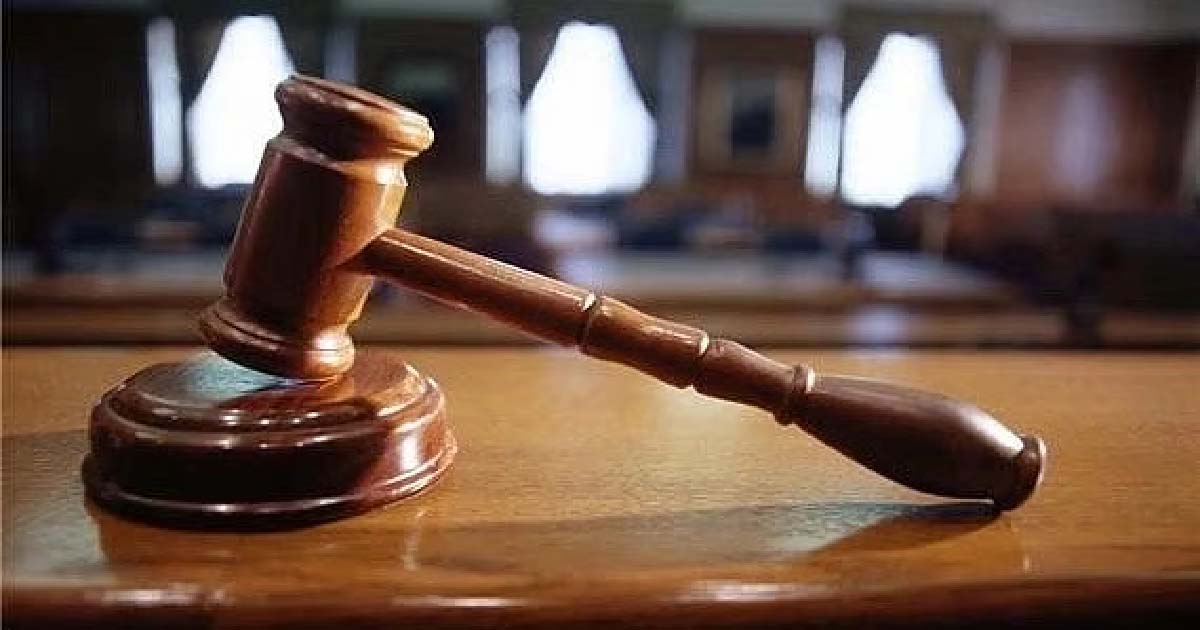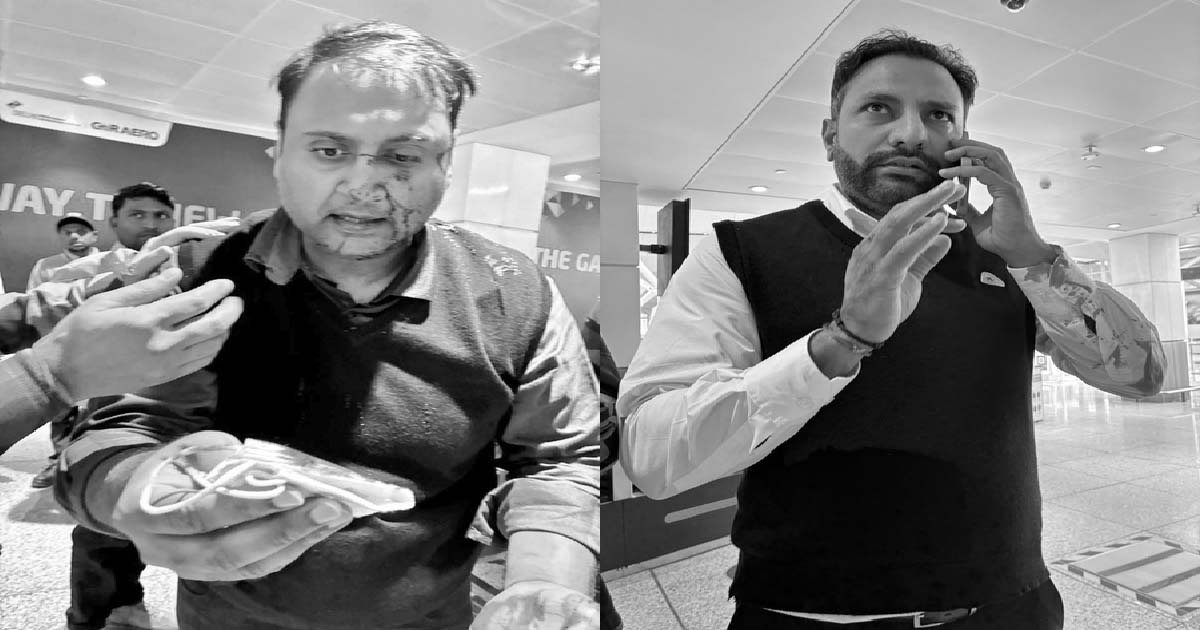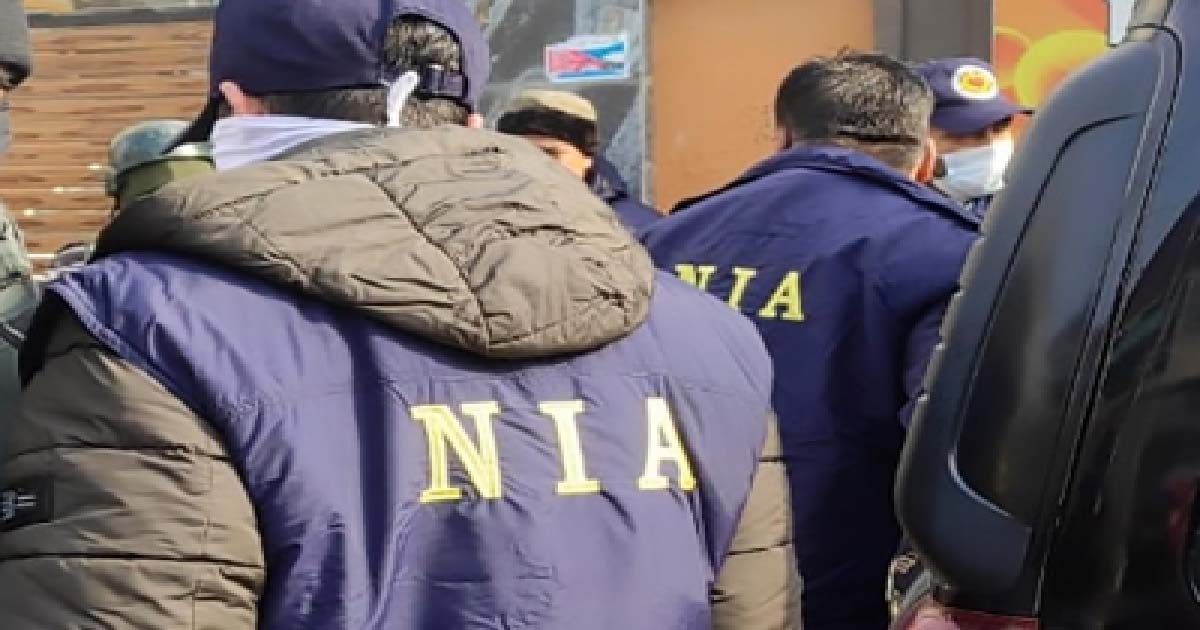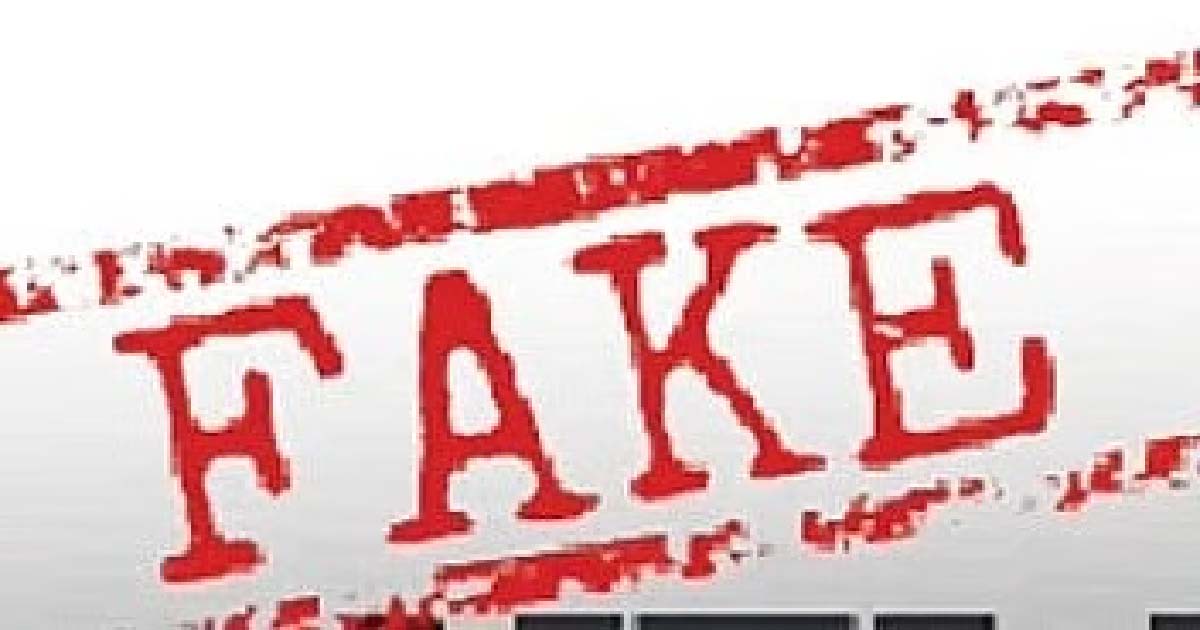Crime
Mumbai: MCOCA Court Refuses To Discharge 63-Year-Old Accused In 1992 JJ Hospital Shootout Case

Mumbai: The special MCOCA court has refused to discharge 63-year-old Tribhuvan Rampati Singh, accused of being one of the assailants in the 1992 JJ Hospital shootout in Mumbai, aimed at avenging the 1991 firing at Dawood Ibrahim’s brother-in-law, Ibrahim Iqbal Parkar.
The prosecution alleges that a group, purportedly from the Arun Gawli gang, attacked Parkar on March 16, 1991. Subsequently, on September 12, 1992, at 3:45 am, assailants armed with AK-47s, pistols, revolvers, and hand grenades entered the ward where shooter Shailesh Haldankar was admitted, opening fire. Haldankar and two constables on security duty were killed, with several others seriously injured.
Arrested after 32 years in Uttar Pradesh for murder charges, Singh was identified through eyewitness statements and a test identification parade, with his confession implicating him in the attack. The prosecution noted, “the report of the doctor about old injuries that appeared on the person of the applicant clearly reflects the old injury due to firearms,” as Singh was injured during police retaliation and fled. Singh’s lawyer, Sudeep Pasbola, claimed mistaken identity, arguing that only two assailants, Subhash Thakur (convicted) and Brijesh Singh (discharged), were involved, and the identification after 32 years is unreliable.
Prosecutor Sunil Go nsalves countered that Singh, alias Ramapati Pradhan, refused a DNA test. The court, after reviewing the record, observed, “prima facie evidence clearly demonstrates that the applicant was involved in the offence of conspiracy, murder, aiding, and abetting to the criminal activity of a crime syndicate,” finding sufficient grounds to proceed against Singh.
Crime
SpiceJet passenger alleges assault by Air India Express pilot at Delhi airport

New Delhi, Dec 20: A SpiceJet passenger has accused an Air India Express pilot of assaulting him following a dispute over allegedly cutting the boarding queue at Indira Gandhi International Airport’s Terminal 1 in an incident that has triggered widespread attention on social media.
The passenger, Ankit Dewan, took to X, sharing a photograph showing blood on his face.
He claimed that the incident unfolded in front of his seven-year-old daughter, who, he said, has been deeply traumatised after witnessing the attack.
Tagging the Delhi Police on social media, Dewan questioned why he could not register a complaint after returning from his trip.
“Why can’t I file a complaint after coming back? Must I sacrifice my money too, to seek justice? Will the CCTV footage disappear in the next two days till I make it back to Delhi?” he asked.
The Delhi Police, however, claimed that no formal complaint had been received in connection with the incident.
“The matter has come to the knowledge of the police through a social media post. Whenever a written complaint is received by the victim in this regard, appropriate legal action will be taken,” the police said.
Dewan also alleged that he was forced to write a letter stating that he would not pursue the matter further.
“… It was either write that letter, or miss my flight and throw the Rs 1.2 lakh holiday bookings down the drain,” he said.
Dewan stated that the incident occurred while he was travelling with his family.
According to Dewan, airport staff directed him, his wife, and their children, including a four-month-old infant in a stroller, to use a security check-in lane typically meant for staff members to ease their movement through the terminal.
However, he alleged that while they were in the queue, some staff members began moving ahead of him.
“The staff was cutting the queue ahead of me. On calling them out, Capt. Virender, who himself was doing the same thing, asked me if I was anpadh (uneducated), and couldn’t read the signs that said this entry was for staff,” he said, adding that the exchange soon turned into a heated verbal argument.
“Not able to exercise restraint, the AIX (Air India Express) pilot proceeded to physically assault me, leaving me bloody. The blood in the photograph on his shirt is also mine,” Dewan said in another post on X, where he identified the pilot involved.
Air India Express issued a statement condemning the incident and said it does not tolerate such conduct.
“The employee concerned has been removed from official duties with immediate effect, pending investigation. Appropriate disciplinary action will be initiated based on the findings of the inquiry,” the airline said.
The airline clarified that the individual was travelling as a passenger on another airline at the time of the incident and was not on official duty.
“Air India Express upholds the highest standards of conduct and professionalism, and remains committed to ensuring that its employees act responsibly at all times,” it added in the statement.
Crime
NIA arrests two more absconders in Dinesh Pusu Gawade murder case in Maharashtra

New Delhi, Dec 20: The National Investigation Agency (NIA) has arrested two more absconding accused in connection with the abduction and brutal murder of Dinesh Pusu Gawade in Maharashtra’s Gadchiroli district.
The wanted accused, both members of the banned CPI (Maoist) terrorist organisation, have been identified as Raghu alias Pratap alias Irpa alias Muddella alias Sailu, a resident of Nizamabad district in Telangana, and Shankar Mahaka, a native of Gadchiroli district in Maharashtra, respectively.
Gawade, a resident of Laheri village in Bhamragarh taluka of Gadchiroli, was abducted and murdered in November 2023 by CPI (Maoist) cadres on suspicion of being a police informer and having links with the RSS. He had gone to Pengunda village to participate in a sports competition, where he was kidnapped and murdered by the ultras.
According to the investigation, Gawade was killed with a sharp weapon. A note was left at the crime scene by the assailants, accusing the victim of being a police informer. The assailants’ motive behind the killing was spreading terror among local villagers and intimidating them against sharing any information about Maoist activities and movements with security forces.
The NIA had taken over the probe from the Gadchiroli Police in October 2024.
Earlier, the agency had chargesheeted four accused — Doba Wadde, Ravi Pallo, Sattu Mahaka, and Komati Mahaka — over their involvement in the ghastly crime. The charge sheet was filed in January this year – against four CPI (Maoist) members of the CPI (Maoist) for the abduction and murder of Gawade under various provisions of the IPC and the Unlawful Activities (Prevention) Act.
Investigation is currently underway and the probe agency has stepped up efforts to unearth the entire conspiracy behind the gruesome murder of Dinesh Pusu Gawade.
Crime
Mumbai Crime: 180 Job Aspirants Cheated In Fake Overseas Employment Scam; 4 Arrested, Passports Recovered

Mumbai: The Samta Nagar police have registered an FIR against eight persons, and arrested four of them, for allegedly cheating around 180 people by promising them jobs abroad. Two of the arrested persons are women. One of the arrested accused was found in possession of the victims’ passports. Following intervention by MP Piyush Goyal, timely action was taken, resulting in the recovery and return of all the passports to the victims. Most of the victims are from Uttar Pradesh, Bihar, Rajasthan, and Delhi.
The accused were running a fake company named ‘Star Man Power’ from Office No 230, Dimple Arcade, Thakur Complex, Kandivali East. The accused have been identified as Devraj Yadav, Ashish Kumar, Verma (first name unknown), Ajan, Ayesha Ansari, Pooja Yadav, Ranjna Kamat, and Kajal Gupta. According to the police, the accused posted advertisements on social media platforms, claiming vacancies for drivers, helpers, fitters, and packing workers in foreign countries.
The accused allegedly demanded Rs 30,000 to Rs 2.5 lakh, depending on the job profile. The accused also conducted fake medical tests, issued fake visas and flight tickets, and retained nearly 180 passports. Payments were collected both in cash and through online transfers into multiple bank accounts. The complainant, Mahesh Chauhan, 25, stated that he visited the office of the accused in November, where his passport was taken, and he was assured a job in Russia.
He was asked to pay Rs 75,000 and initially paid Rs35,000. On November 11, when he visited the office to collect his passport and flight ticket, the office was closed. After waiting for several hours, he noticed more than 100 people gathered outside the office. Soon, they realised that everyone had come to collect their passports and tickets. Some victims had even been given fake visas and flight tickets. When the victims attempted to contact the main accused, Devraj Yadav, they found his mobile phone switched off.
The phones of the other accused were also unreachable. The victims then approached the police and filed a complaint. Based on this, the police registered a case on December 3 under Sections 318(4) (cheating), 316(2) (criminal breach of trust), and 61(2) (criminal conspiracy) of the Bharatiya Nyaya Sanhita. The victims alleged that while the police registered the case promptly, action took time. Subsequently, they approached the BJP office in Kandivali West and also contacted the Ministry of Commerce and Industry.
Reacting to the incident, MP and Union minister Piyush Goyal stated, “Safeguarding the interests, dignity and future of India’s youth remains a key priority of the government led by Prime Minister Narendra Modi. Any individual or racket that exploits the dreams of young citizens will face strict and prompt action.” He added that in this case, swift police action, recovery of passports and relief to the affected victims is a matter of satisfaction.
-

 Crime3 years ago
Crime3 years agoClass 10 student jumps to death in Jaipur
-

 Maharashtra1 year ago
Maharashtra1 year agoMumbai Local Train Update: Central Railway’s New Timetable Comes Into Effect; Check Full List Of Revised Timings & Stations
-

 Maharashtra1 year ago
Maharashtra1 year agoMumbai To Go Toll-Free Tonight! Maharashtra Govt Announces Complete Toll Waiver For Light Motor Vehicles At All 5 Entry Points Of City
-

 Maharashtra1 year ago
Maharashtra1 year agoFalse photo of Imtiaz Jaleel’s rally, exposing the fooling conspiracy
-

 National News1 year ago
National News1 year agoMinistry of Railways rolls out Special Drive 4.0 with focus on digitisation, cleanliness, inclusiveness and grievance redressal
-

 Maharashtra1 year ago
Maharashtra1 year agoMaharashtra Elections 2024: Mumbai Metro & BEST Services Extended Till Midnight On Voting Day
-

 National News1 year ago
National News1 year agoJ&K: 4 Jawans Killed, 28 Injured After Bus Carrying BSF Personnel For Poll Duty Falls Into Gorge In Budgam; Terrifying Visuals Surface
-

 Crime1 year ago
Crime1 year agoBaba Siddique Murder: Mumbai Police Unable To Get Lawrence Bishnoi Custody Due To Home Ministry Order, Says Report












